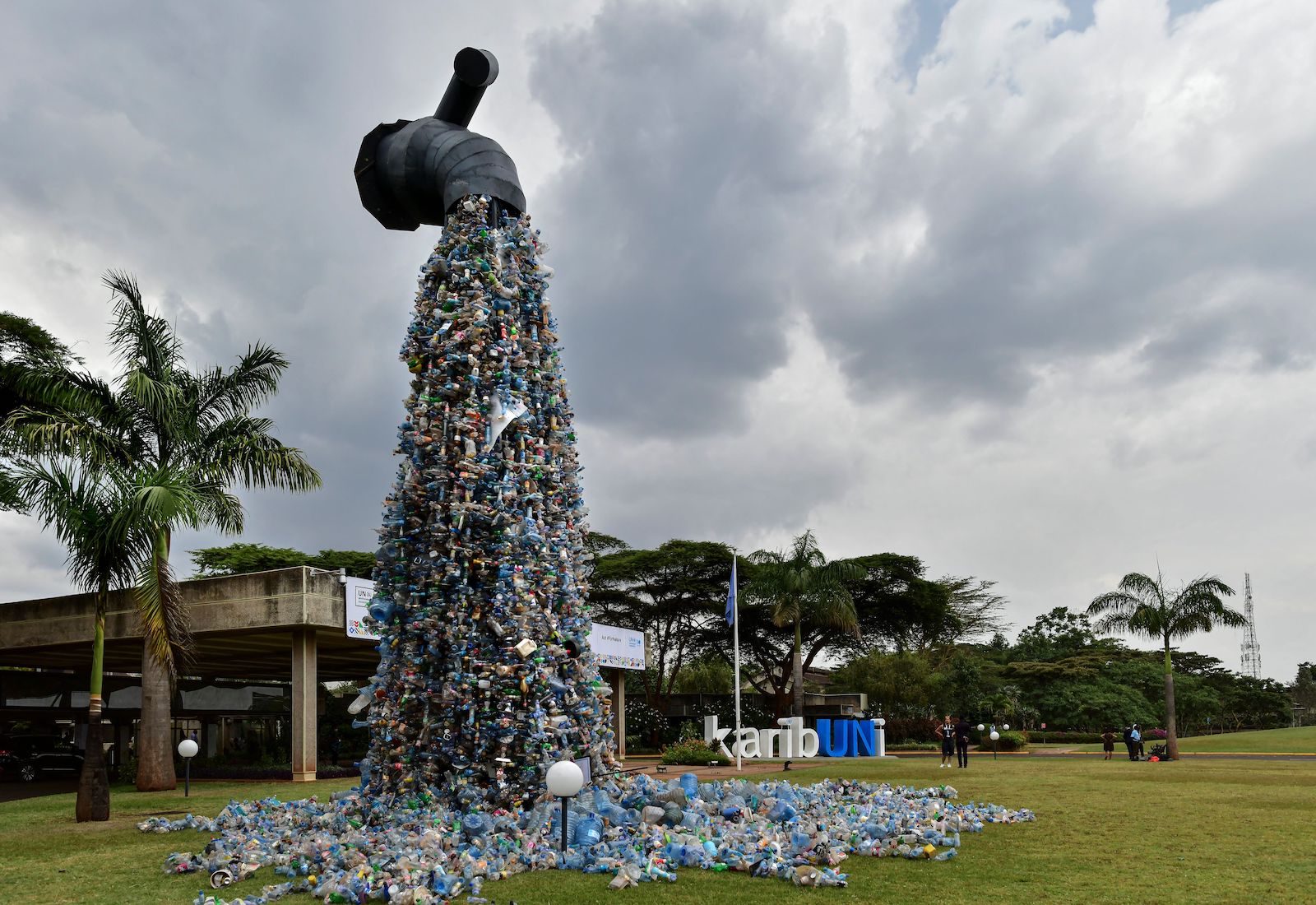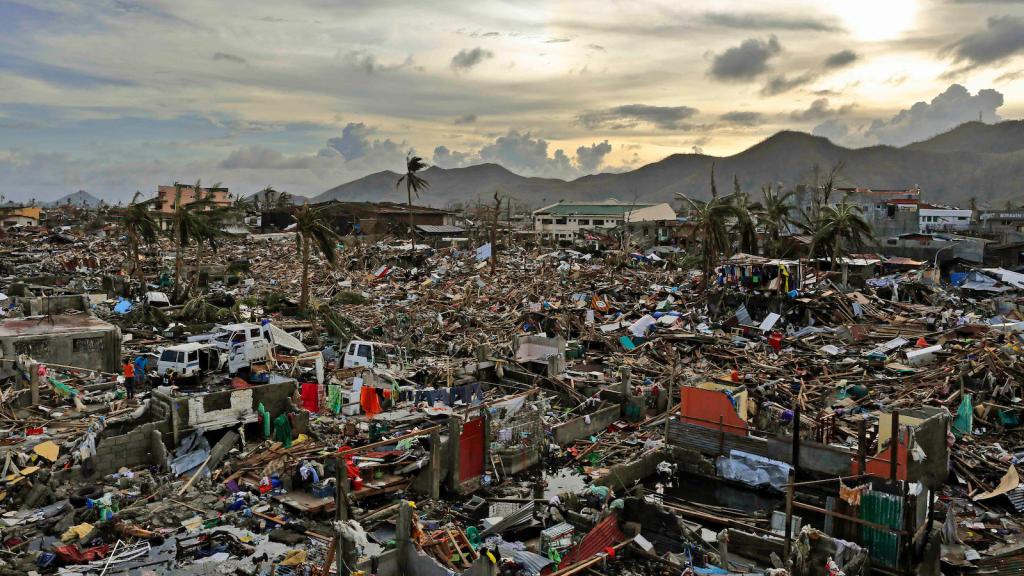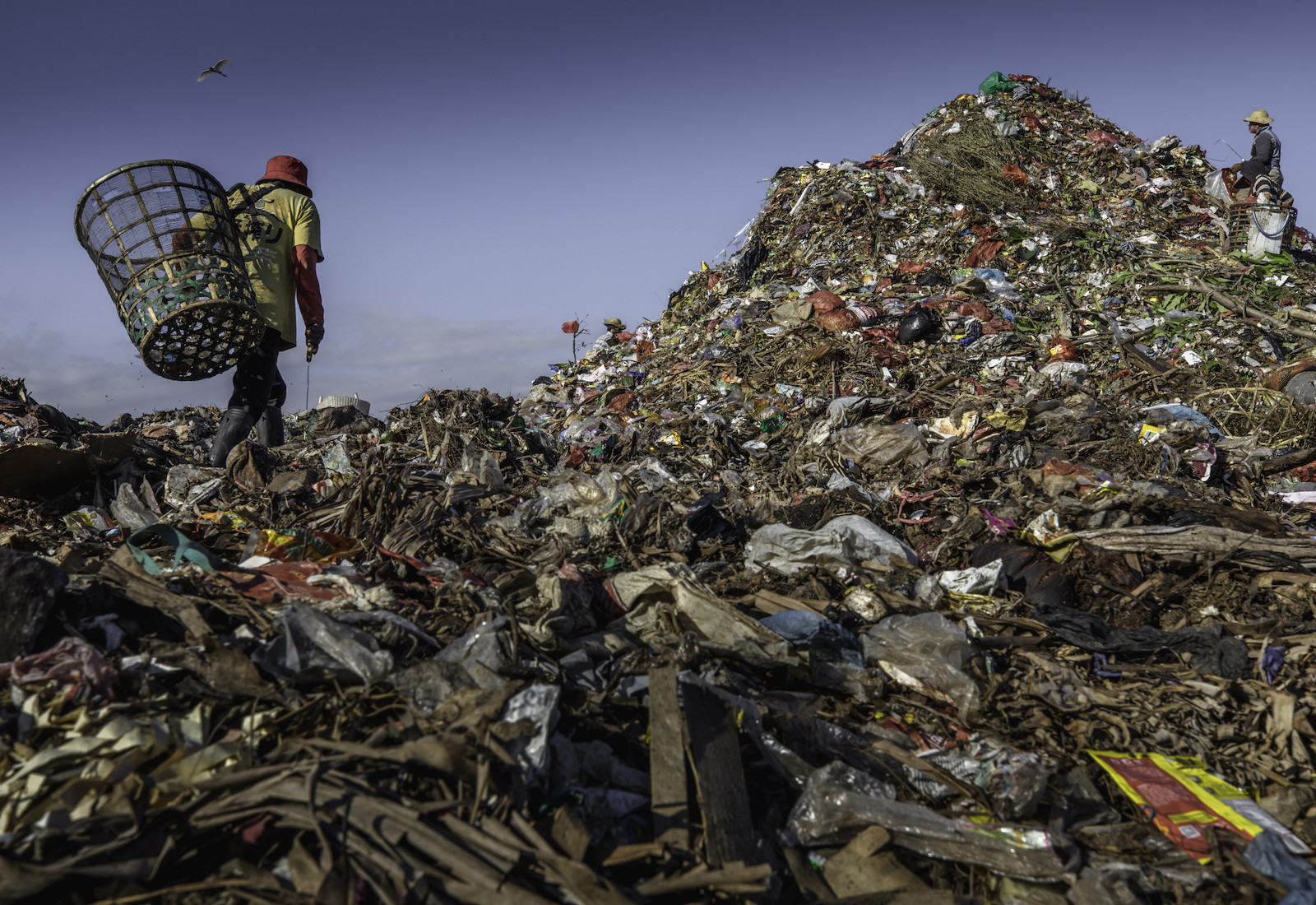World leaders concluded the fifth United Nations Environment Assembly on Wednesday with a promise to the world: By 2024, delegates will broker a binding, international treaty addressing the full life cycle of plastics — including its production and design.
“We made history today,” Espen Barth Eide, Norway’s minister of climate and environment and president of the Assembly, told delegates in an emotional address. He closed the proceedings with the bang of a gavel made of reclaimed plastic.
The United Nations conference in Nairobi, Kenya, has been branded the most significant international environmental negotiation since 2015, when world leaders met to broker the Paris Agreement. For years, scientists, policymakers, and environmental advocates have urgently called for a comprehensive solution to the plastic pollution crisis, which — like climate change — is already exerting a hefty toll on people and the natural world.
Up to 150 million metric tons of plastic pollution is currently swirling around the oceans, for example, strangling marine life and contaminating the food chain. Plastic production and the incineration of plastic waste both release toxic air pollution into disadvantaged communities. And on top of all that, plastic, which is made out of petroleum, is a major source of greenhouse gas emissions: According to the United Nations Environment Programme, or UNEP, plastic production, use, and disposal are on track to account for nearly one-fifth of the planet’s carbon budget — the amount the world can emit before it exceeds 1.5 degrees Celsius of global warming — by 2040.
Delegates at this week’s U.N. conference agreed to address the problem through a holistic “life cycle” approach, meaning the treaty they negotiate over the next two years could limit the amount of plastic the world is allowed to produce. There are some caveats: Although the treaty itself will be binding, the resolution contains language allowing for binding and non-binding elements, and nations may have a lot of discretion over how they adhere to the treaty’s terms.
Still, the treaty may prompt U.N. member states to adopt far-reaching measures to curb plastic pollution, potentially including national production caps or market-based mechanisms, like extended producer responsibility laws that force plastic manufacturers to pay for the pollution they create. This overall approach is in line with what scientists and environmental advocates have long stressed is the best way to curb pollution from plastics.
“In order to not have plastic waste, you have to not have plastic production,” said Jay Lund, a professor of civil and environmental engineering at the University of California, Davis. Last year, he coauthored a high-profile report for the National Academies of Sciences, Engineering, and Medicine urging the U.S. to begin limiting plastic production.

The final resolution adopted at this week’s conference is partially based on a proposal initially put forward by Peru and Rwanda, which called for measures to address “product design and use” in order to remediate plastic pollution. This is in contrast to an alternative proposal that was penned by Japan and India, which would have focused mostly on cleaning up plastics that have already entered the ocean. Trade groups like the American Chemistry Council and Plastics Europe, which represent fossil fuel and chemical companies, favored this approach. Both groups lobbied policymakers ahead of the U.N. conference in an attempt to dissuade them from supporting plastic production limits.
Neither the American Chemistry Council nor Plastics Europe responded to Grist’s request for comment on their lobbying activities, although statements sent from both groups expressed support for the development of a global agreement on plastic waste. Matthew Kastner, a spokesperson for the American Chemistry Council, told Grist that limiting plastic production could increase greenhouse gas emissions because alternatives to plastic tend to weigh more, which means that transporting them requires more energy. “Instead of restricting essential and life-saving materials that contribute to sustainability,” Kastner said, “we should focus on ending the leakage of those materials into the environment.”
U.N. member states soundly rejected this logic on Wednesday, confirming the need to intervene across the plastic pollution pipeline, “from source to sea.”
Chever Voltmer, plastics initiative director for the nonprofit Ocean Conservancy, applauded negotiators for agreeing to develop a financial mechanism to help countries decrease their plastic production. Financing and technology transfer, whereby wealthy nations lend advanced technology and expertise to the developing world, are “where the rubber hits the road,” she told Grist. “You can negotiate anything you want, but if countries don’t have the capacity or the tools or the knowledge or the resources, it’s not going to happen.”
Exactly how this financial component will work, along with other important details — like how quickly to implement the final treaty and how to transparently measure and report countries’ progress toward its goals — will be hammered out by an intergovernmental coordinating committee starting later this year. Separately, the resolution also pledged to create a new panel of experts focused on mitigating the global pollution crisis, modeled after existing panels like the Intergovernmental Panel on Climate Change.
Graham Forbes, plastics global project leader for Greenpeace, added that he hopes the U.N.’s forthcoming treaty will outline plans for a just transition for so-called “waste pickers” and others who have built livelihoods around the world’s glut of plastic refuse.
Forbes vowed to keep the pressure on the U.N., individual governments, and global corporations as a treaty is hammered out over the next two years. “We will be there at every step of the way to hold governments and corporations to account,” he told Grist, “to ensure a strong global plastics treaty that centers justice and addresses the problem at its source.”
Editor’s note: Greenpeace is an advertiser with Grist. Advertisers have no role in Grist’s editorial decisions.



